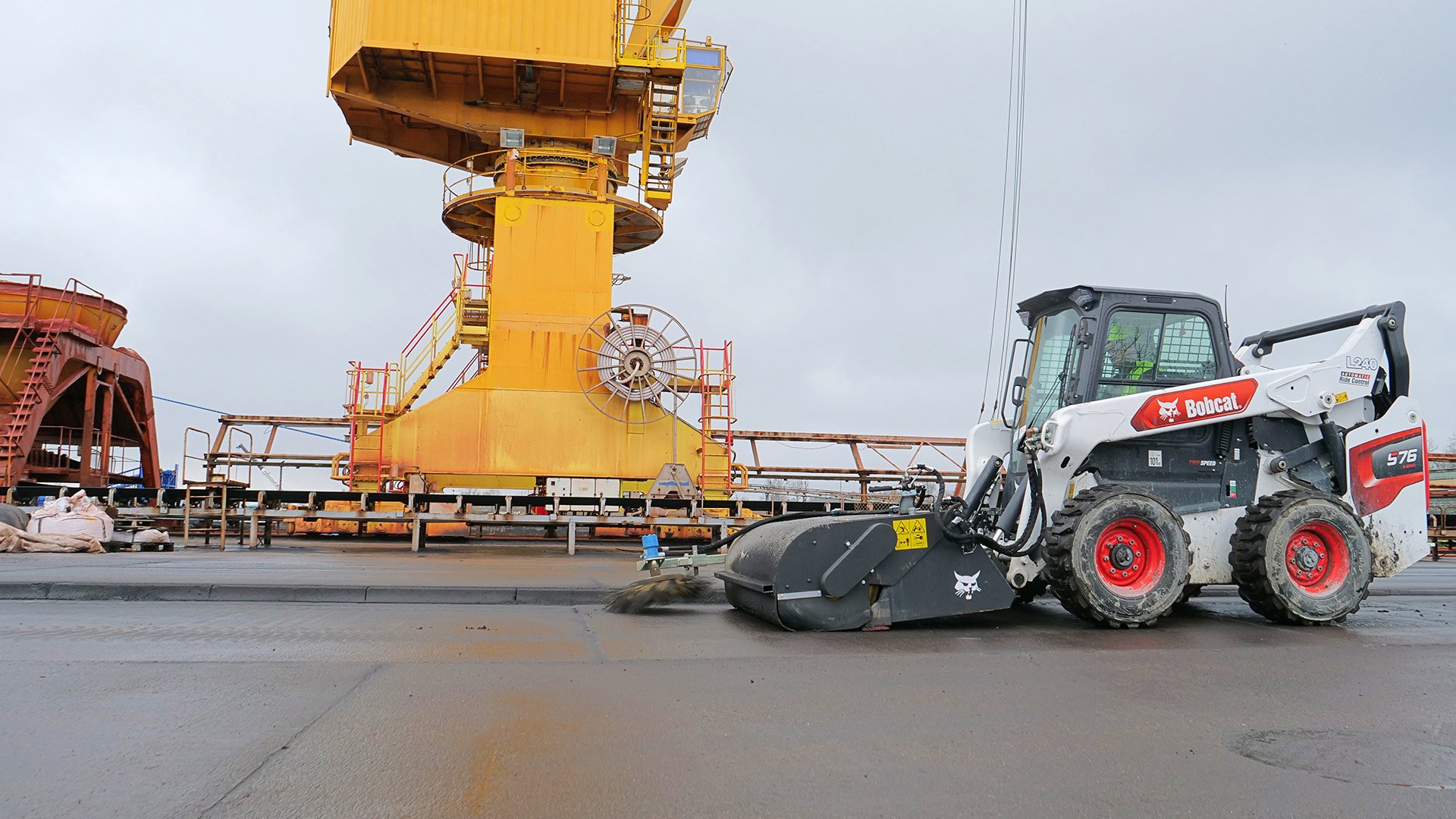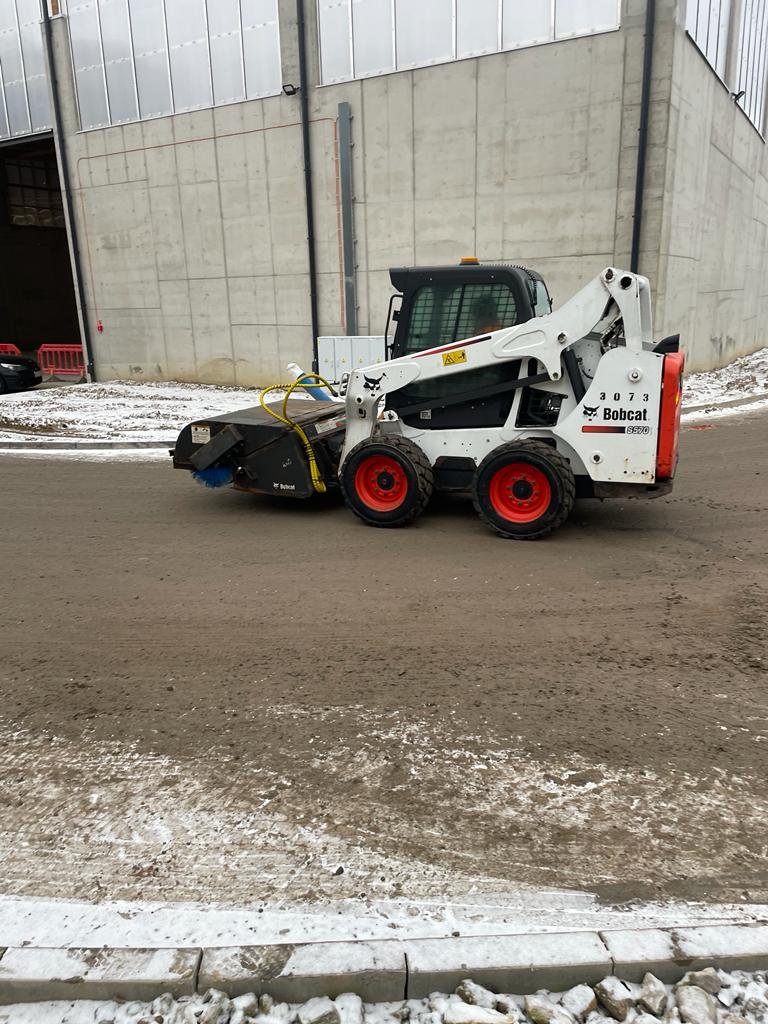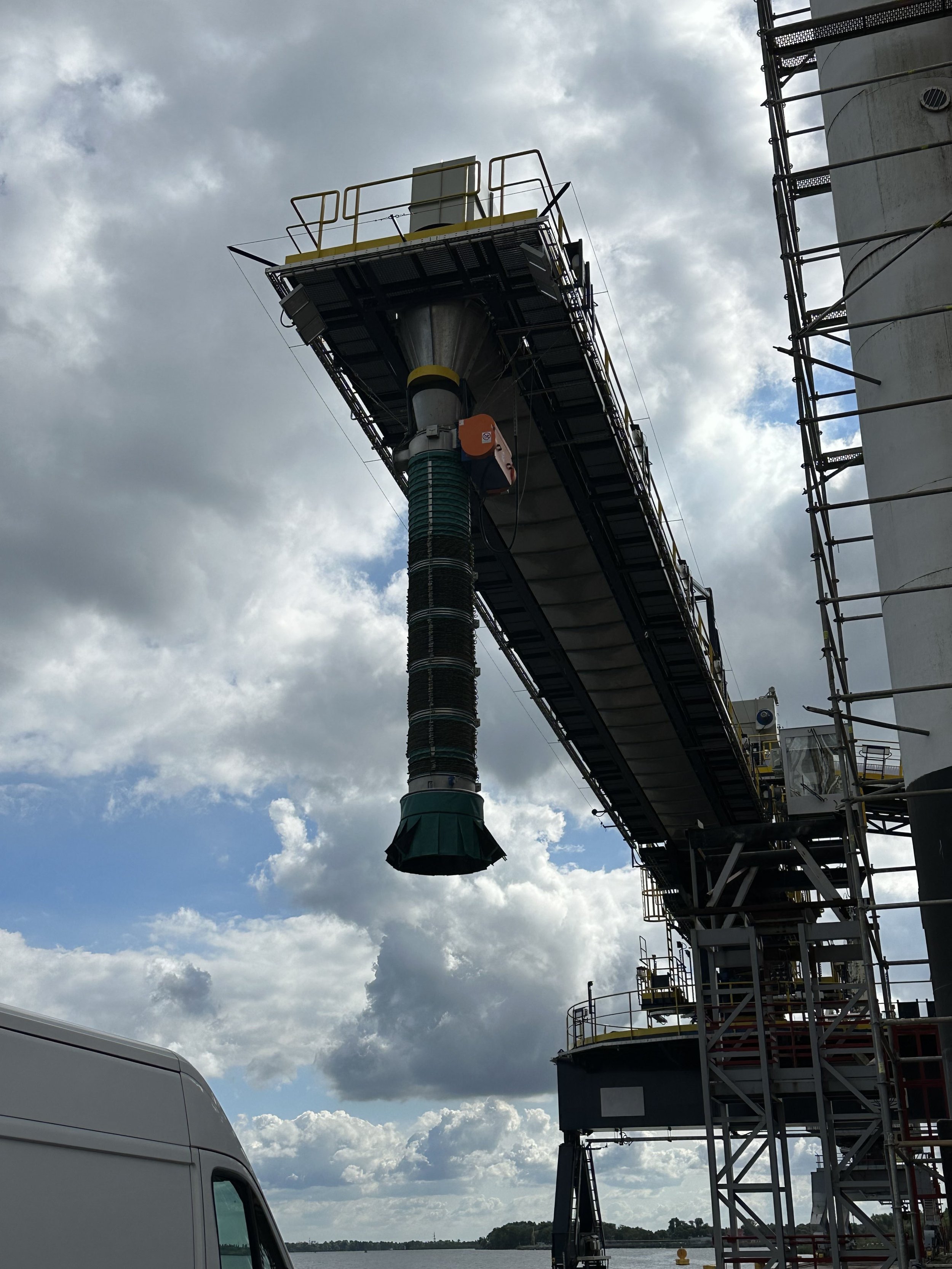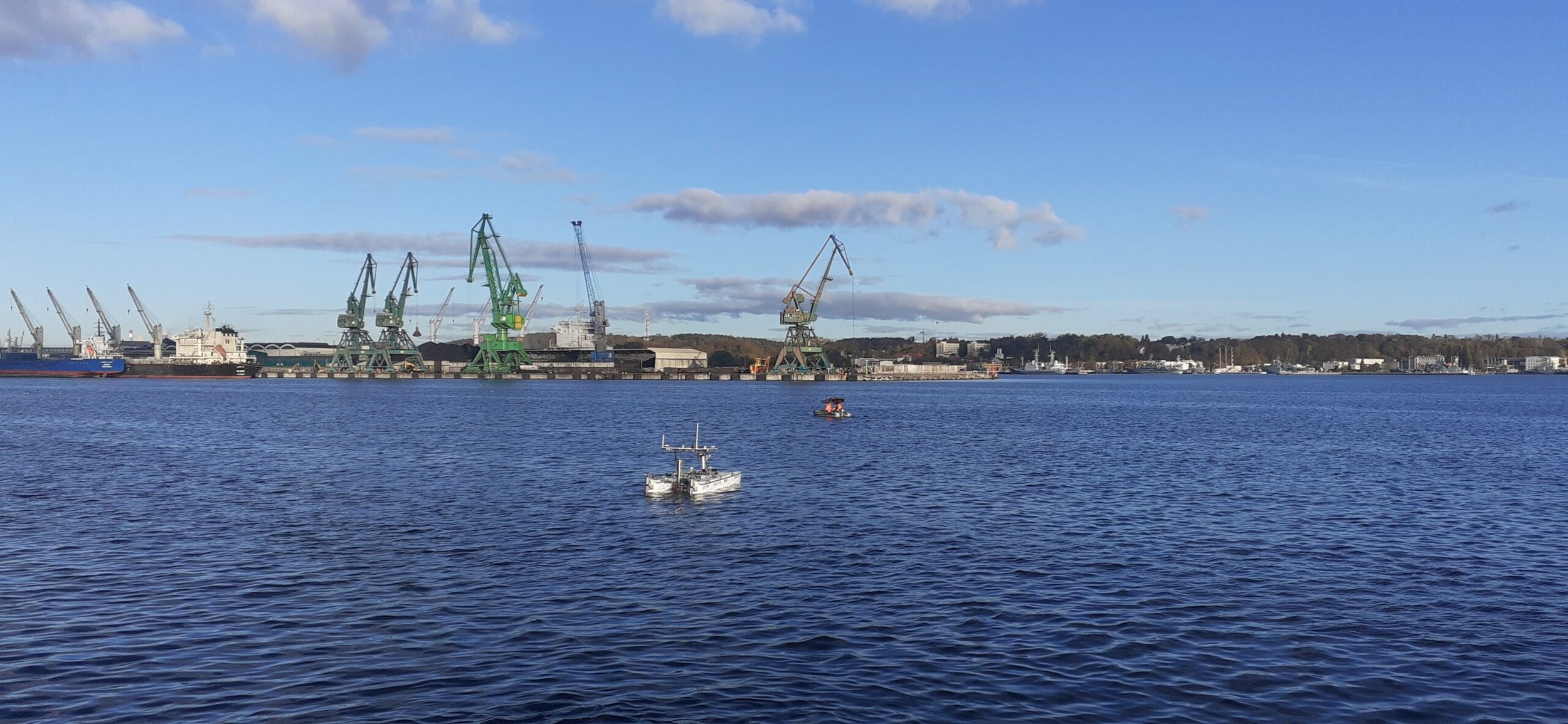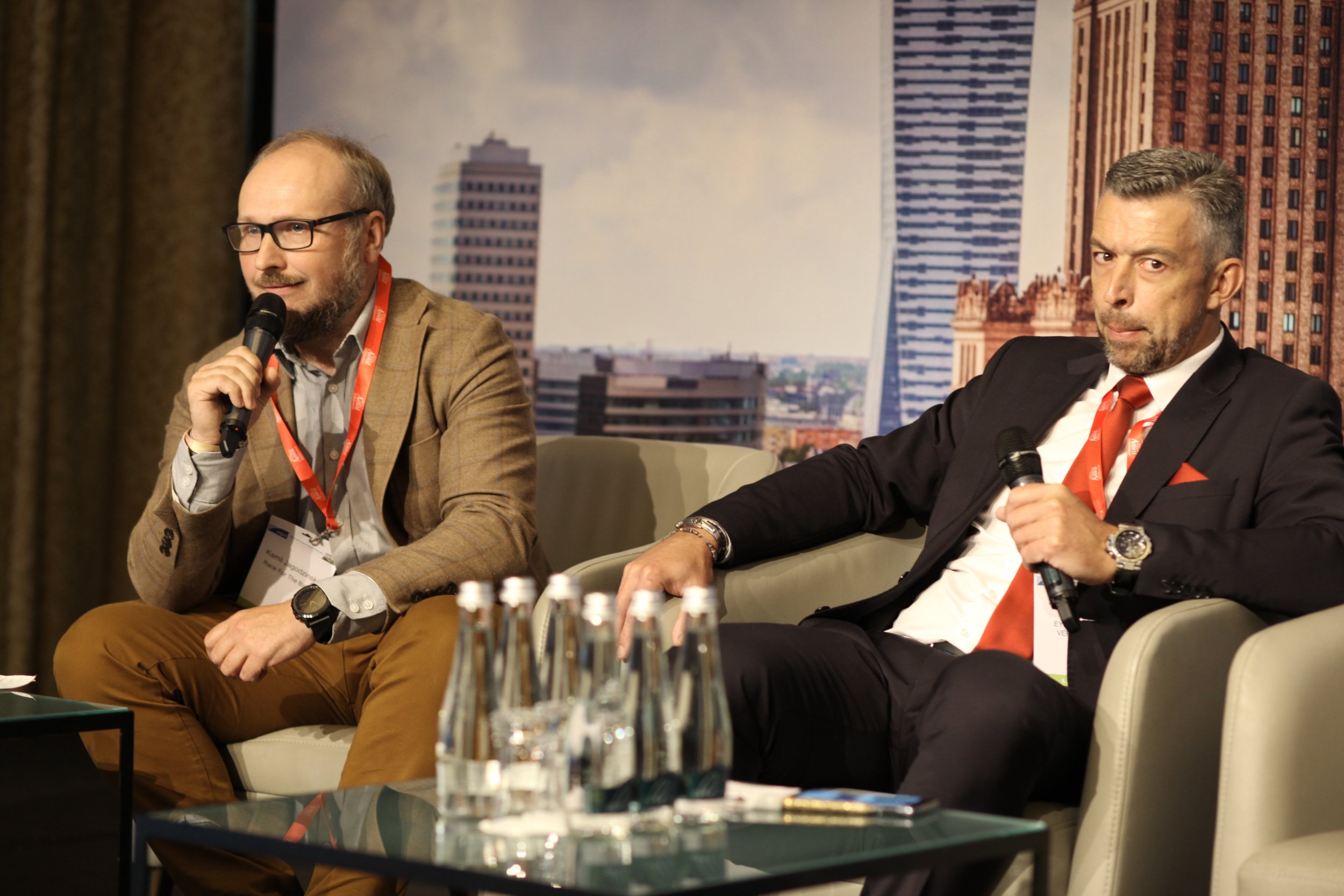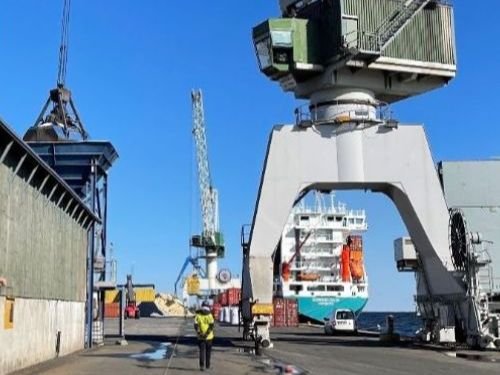Production: Exploring the hidden value of phosphogypsum
In early 2025, we explored the potential of recycling phosphogypsum to reduce phosphorus inflow into the Baltic Sea. Working with German and Polish partners, we investigated its market value and discovered promising signs of rare earth elements (REEs) in the waste. As demand for REEs rises, this could redefine phosphogypsum as a valuable resource. We’re also assessing its reuse in construction and the recovery of phosphorus—both critical raw materials. These efforts support both environmental protection and EU raw material security. The journey continues as we explore this “new gold” further.
Production: exploring recycling of phosphogypsum
Race For The Baltic in partnership with Fabryka Zieleni and the Technical University of Koszalin, has launched a project to reduce phosphorus inflow into the Odra River and the Baltic Sea. Initial analyses are underway, with plans for targeted measures to follow. Additionally, under the Production project, our Project Managers have engaged in multiple meetings with with German academia and companies is exploring the recycling of phosphogypsum, addressing a gypsum shortage caused by reduced coal burning and natural gypsum mining in Germany. Together with our partners, we are exploring opportunities for cooperation to identify potential companies interested in Polish phosphogypsum, aiming for sustainable, long-term solutions.
New cooperation agreement within the production of fertilizers
In the third quarter of 2024, RFTB signed a new cooperation agreement with Fabryka Zieleni (Fosfan). Additionally, we engaged in another productive meeting with Grupa Azoty Police to set new cooperation goals and participated in the Baltic Sea Conservation Foundation meeting in Gdańsk.
Strengthened partnership and data collection
In Q2 RFTB held a productive meeting with Grupa Azoty Police, discussing environmental commitments and projects to reduce phosphorus emissions. We are now considering partnering with another fertilizer plants to limit phosphorus discharge into the Baltic Sea. Additionally, RFTB began data collection from cleaning sweepers during the first quarter of 2024. This data, covering phosphate rock and fertilizers collected from quays, storage areas, and ship holds, highlights the effectiveness of the cleaning machines in preventing significant pollution of the Baltic Sea.
Production: Grupa Azoty Police and Race For The Baltic announces cooperation
Significant progress was made with our key partner in Poland, Grupa Azoty Police where we officially announced cooperation to reduce the environmental impact on the Baltic Sea. The port is located just by the Oder River and it is Poland’s fourth-largest port by cargo volume with two million tonnes of cargo being transshipped here annually. After the successful implementation of cleaning sweepers in the Police Port terminal, RFTB is now looking at new projects together with Grupa Azoty within environmental sustainability. RFTB also participated in a series of meetings and a conference where we discussed the circular economy possibilities within the phosphate industry and presented best available practices for handling dry bulk fertilizer in ports.
Production: Significant advancements in collaboration with our main partner
During Q323 we had a major development in the cooperation with our main partner – a fertilizer producer in Poland – as we formally signed a framework cooperation agreement. Now we can start a full-fledged collaboration in areas concerning phosphorus emission prevention measures.
Production: The start of concrete projects
We have deepened the collaboration with our main partner – a large fertilizer producer in Poland. Site visits were conducted to construct prevention covers at the quayside, and a cooperation agreement is expected to be finalised soon. We also progressed in collaboration with other medium-sized partners in north-western Poland, where discussions on various solutions took place. Additionally, we organised a presentation of two cleaning machines designed for seaport terminals, both worked exceptionally well and will make it easier to collect and remove any residues that may leak onto the quay during loading and unloading.
Production: Substantial progress with our main partner
We are pleased to announce significant progress with our main partner, a large fertiliser producer in Poland, during the first quarter of 2023. We held a high-level meeting where we discussed the framework and scope of our future cooperation, which will formally commence upon signing the agreement. The meeting showcased a consensus on several areas with enormous potential for reducing phosphorus leakage into the Baltic Sea.
We also deepened collaboration with a medium-sized fertiliser producer and seaport operator. Our site visit confirmed the effectiveness of our prevention cover in reducing spillage. We actively participated in a Helcom workshop on hot spot criteria.
Progress towards results in the production project
During Q422 we developed solutions to prevent leakages for one of the largest phosphate fertilizer ports in the Baltic Sea region. The solutions are now on the table for decision, and we hope to see them implemented during 2023. We also had another high-level meeting with our main partner in Poland, which is a large fertilizer producer.
Identified concrete solutions in the Production Project
Over the summer we held a high-level meeting with our main partner in Poland – a large fertilizer producer. We managed to pinpoint the most important activities for the second half of 2022 which include investment plans with significant emission reduction potential and a large leap forward in technology. We plan to hold several expert meetings as a follow-up. During Q322 we also initiated some new cooperations with private entities and local authorities.
Production Project speeding up
The Production Project is still in its build-up. Despite some troubles caused by the ongoing war in Ukraine the project has already come a long way. In the past quarter we held several important meetings with our partners. We have also met with the port management at one of the larger fertilizer production facilities around the Baltic Sea and initiated discussion on how to minimize losses to the sea.
Furthermore, our best practices with regards to bulk fertilizer leakage reduction have been presented at two international conferences; ESPC4 and Argus Fertilizer East Europe in Warsaw. During the Warsaw conference our Business Manager Kamil Jagodzinski took part in a discussion panel “Shipping and Logistics symposium: Challenges for ports and shippers”.
New project Production kicks off
As a spin-off to the Port Project the Production Project started in January 2022. Whilst the Port Project is addressing the unloading and loading of dry bulk fertilizer in ports the Production Project will address additional and more production-oriented areas that has impact on the phosphorus leakage into the Baltic Sea. The identified areas have been found in close co-operation with fertilizer producers, ports representatives, other NGOs, business consultants and governmental agencies.





